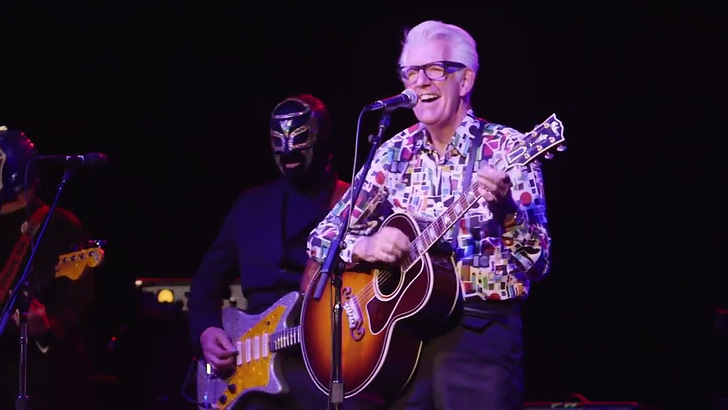Nick Lowe's Quality Rock & Roll Revue
Starring Los Straitjackets, and Tommy McLain and C.C. Adcock
A few days ago I told my son-in-law Joe that we were going to see Nick Lowe at the Landmark on Main Street Theater in Port Washington, N.Y., on Wednesday, June 22.
"Who is Nick Lowe?" he asked. Joe is very curious, very smart, and is a sponge for knowledge. It is an excellent question.
But how does one answer it? The short answer is that Lowe is one of rock & roll's great songwriters, a singer, performer, guitar player, and an influential presence on the Anglo-American rock scene for more than 50 years. Before punk, before new wave, before power pop, Nick Lowe, 73, was all of those things in a British band called Brinsley Schwarz. Yes, Brinsley Schwarz was the name of the nominal leader, and it leaned what was then called "country rock" with a twist, or even pub rock. (Nick Lowe does everything with a twist: that is one of the things that makes him Nick Lowe.)
Self-deprecation is one of Nick Lowe's virtues: It's a great survival mechanism for someone who has spent more than 50 years on t…
Keep reading with a 7-day free trial
Subscribe to Critical Conditions by Wayne Robins to keep reading this post and get 7 days of free access to the full post archives.



